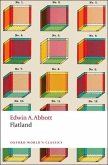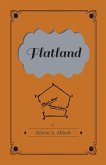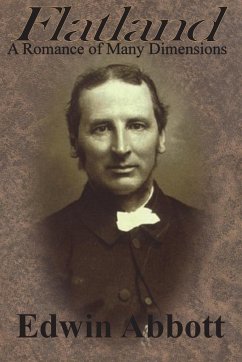'Flatland: A Romance of Many Dimensions' is one of the most original pieces of fiction ever written by Edwin A. Abbott, an English theologian, clergyman, educator, and Shakespearean scholar. This is a satirical mathematical novella that also examines English society during the Victorian era. It describes the journeys of A. Square, a mathematician, and resident of the two-dimensional Flatland, where women-thin, straight lines are the lowliest of shapes, and where men may have any number of sides, depending on their social status. Through strange occurrences that bring him into contact with a host of geometric forms, Square has adventures in Spaceland (three dimensions), Lineland (one dimension), and Pointland (no dimensions) and ultimately entertains thoughts of visiting a land of four dimensions-a revolutionary idea for which he is returned to his two-dimensional world. Charmingly illustrated by the author, Flatland is not only fascinating reading; it is still a first-rate fictional introduction to the concept of the multiple dimensions of space.
Hinweis: Dieser Artikel kann nur an eine deutsche Lieferadresse ausgeliefert werden.
Hinweis: Dieser Artikel kann nur an eine deutsche Lieferadresse ausgeliefert werden.







